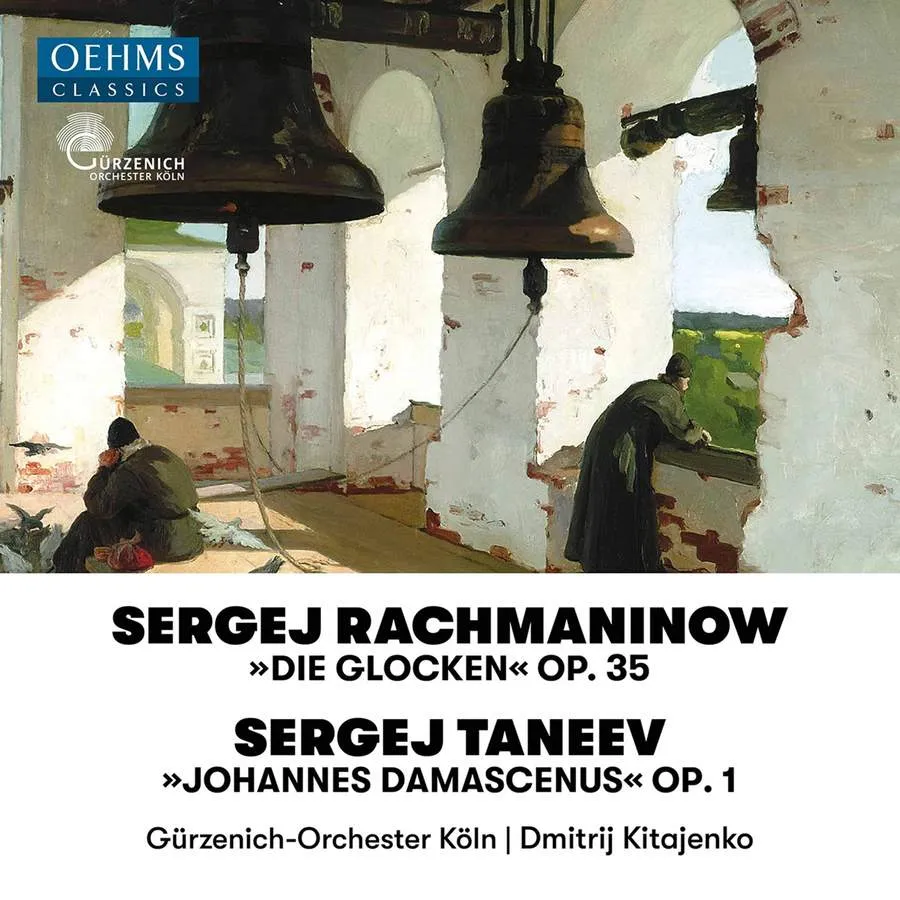
Rachmaninov • Taneyev Rachmaninov: The Bells, Op. 35; Taneyev: St John of Damascus, Op. 1 Dmytro Popov (tenor), Anna Samuil (soprano), Vladislav Sulimsky (baritone); Czech Philharmonic Choir Brno; Gurzenich Orchestra Cologne/Dmitri Kitayenko Oehms OC 470 64:38 mins
This rather quirky coupling is not unique. Mikhail Pletnev (on DG) was the first to couple Rachmaninov’s striking setting of Edgar Allan Poe, as translated by the great Russian poet Balmont, with Taneyev’s solemn neo-Baroque cantata. Curiously, the coupling highlights the Russian qualities of works which appear scarcely Russian in inspiration (Taneyev indeed being regarded as scarcely Russian in style by his compatriots).
Conductor Dmitri Kitajenko previously recorded The Bells for Chandos with the choir and orchestra of Danish National Radio, and a mixed (in more than one sense) line-up of soloists. Here in this recording, made in 2018, he conducts a superb German orchestra, a Czech choir and a Slavic team of soloists. The Ukrainian tenor, Dmytro Popov, his tone pleasantly rounded, sings with more taste than does the Danish soloist in the Chandos recording. Soprano Anna Samuil, though moderately ripe-toned, is expressive, and Vladislav Sulimsky is a splendidly dramatic baritone. If only Kitajenko kept a less tight rein in this work, most particularly the far too measured opening movement: Pletnev and most especially Vladimir Ashkenazy (on Decca) are far more lively, the latter also conjuring more effectively the eerie Poe-like atmosphere that casts a shadow midway through that movement.
The Taneyev is much more successful. Here Kitajenko’s careful pacing of its opening creates an appropriate atmosphere of reverence, and a sense that every moment matters. The chemistry achieved here is such that what often appears a rather stolid work indebted to Bach here casts a sombre spell that recalls something of Mozart’s Masonic works.
Daniel Jaffé